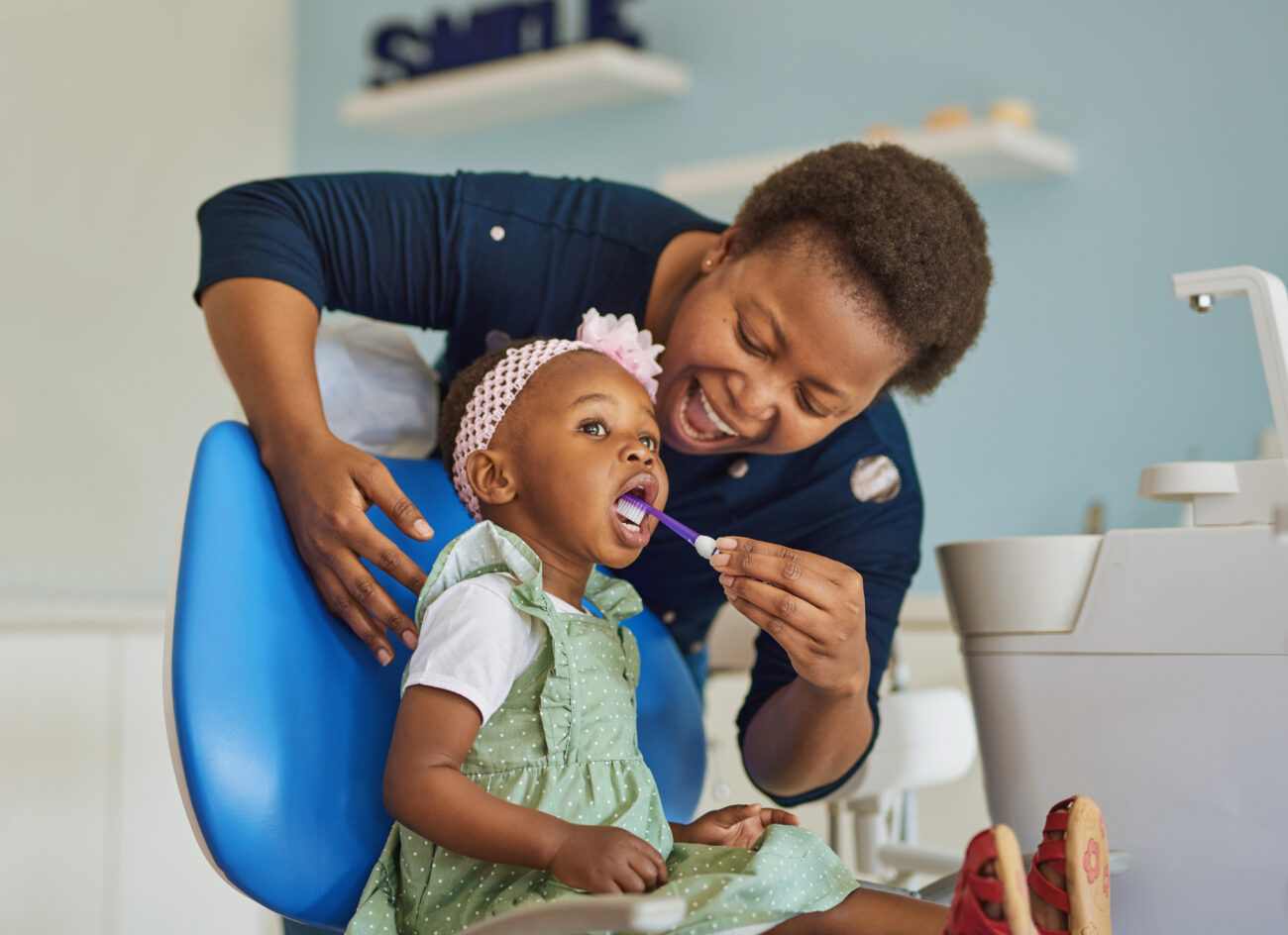As parents, we’re always looking out for our children’s well-being, from nutrition and sleep to education and emotional health. But one area that can sometimes be overlooked is dental care, especially in the earliest years. Many parents wonder when it’s the right time to start pediatric dentistry. The answer may surprise you, and it’s earlier than you might think.
The First Tooth, The First Visit
According to the American Academy of Pediatric Dentistry (AAPD), children should see a pediatric dentist by their first birthday, or within six months after the eruption of their first tooth, whichever comes first. This early visit is critical, not just for catching any potential issues, but for setting the foundation of a healthy oral care routine that can last a lifetime. The idea of taking a baby to the dentist before they have a full set of teeth might seem unnecessary at first. However, baby teeth (also known as primary teeth) play an essential role in a child’s development. They help with chewing, speaking, and holding space in the jaws for adult teeth. Early visits allow dentists to monitor this development and ensure everything is progressing normally.
Preventing Early Dental Problems
One of the main goals of early pediatric dental care is prevention. Tooth decay can begin as soon as a baby’s first teeth appear. In fact, early childhood caries, also called baby bottle tooth decay, is a common issue that can affect very young children, especially if they go to sleep with a bottle of milk, juice, or formula. During the first dental visit, the pediatric dentist will examine your child’s mouth, check for signs of decay or abnormalities, and clean the teeth if necessary. More importantly, they will provide guidance on how to care for your child’s teeth at home. Topics like proper brushing techniques, fluoride use, and diet will all be part of the conversation.
Establishing a Dental Home
Starting pediatric dental visits early helps establish what’s known as a “dental home.” This is the place where your child receives regular dental care, guidance, and treatment throughout their early years. Having a consistent dental provider often reduces anxiety for both the child and the parents and encourages a more personalized, comprehensive approach to oral health. By building a relationship with a pediatric dentist early, children are more likely to feel comfortable during appointments. This can go a long way in preventing dental anxiety in the future, which is a common reason many adults avoid the dentist altogether.
Monitoring Growth and Development
As your child grows, their dentist will monitor the alignment of the jaw, spacing of the teeth, and other developmental factors. While baby teeth will eventually fall out, they play a vital role in guiding permanent teeth into place. Identifying any issues early can make a significant difference, potentially reducing the need for more complex orthodontic treatment later on. Pediatric dentists are also trained to spot signs of habits that may impact oral development, such as thumb sucking or tongue thrusting. Intervening at the right time could prevent these habits from leading to long-term problems.
Making Dental Care a Habit
One of the most valuable aspects of early pediatric dentistry is helping children learn that oral care is a normal and important part of life. When dental visits begin early and continue regularly, usually every six months, kids grow up understanding the importance of caring for their teeth. Parents benefit, too, by receiving the tools and education they need to maintain their child’s oral health at home. Questions about brushing routines, teething discomfort, pacifier use, and diet are all common and welcomed by pediatric dentists.
Pediatric Dentistry in Mt. Airy, MD
At Mt. Airy Children’s Dental Associates, we understand the importance of early dental care. The sooner your child starts seeing a pediatric dentist, the more likely they are to develop a positive oral hygiene routine. Contact our office today to schedule their first appointment and learn the benefits of early treatment.

